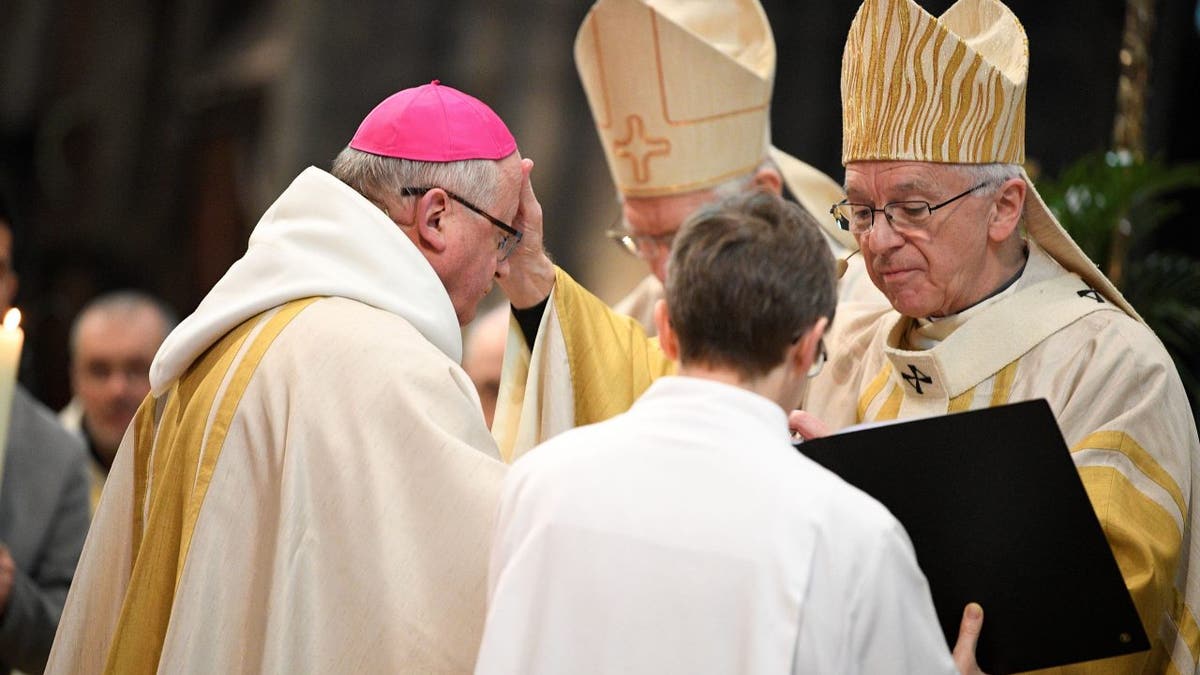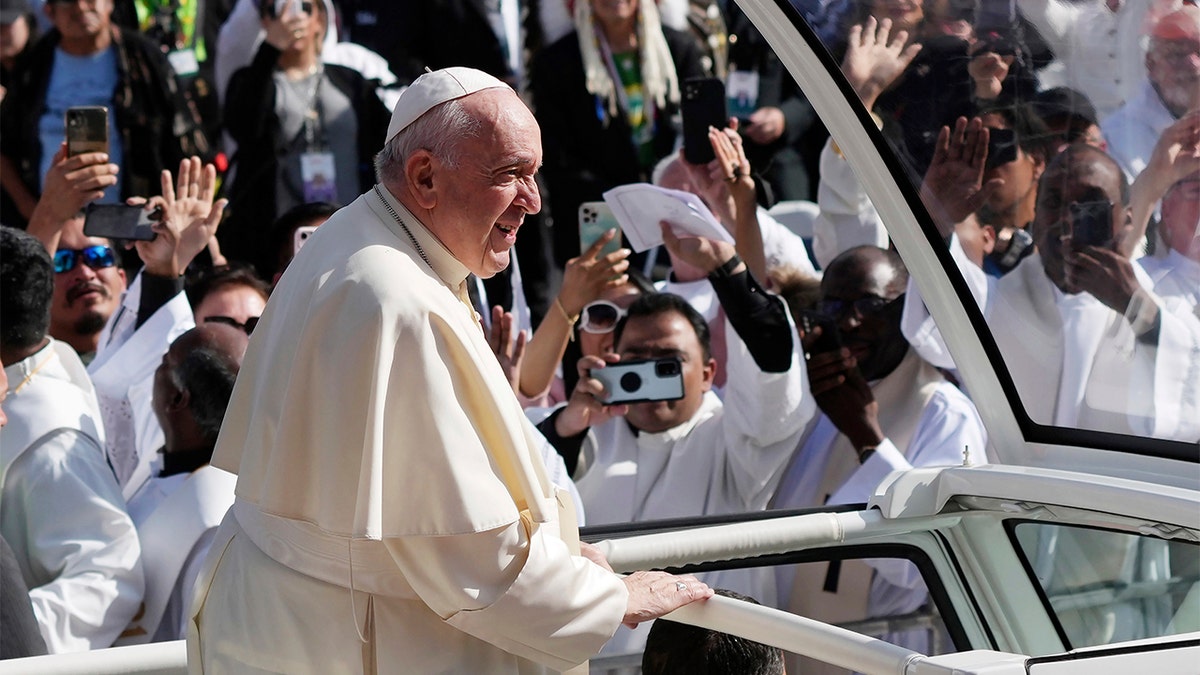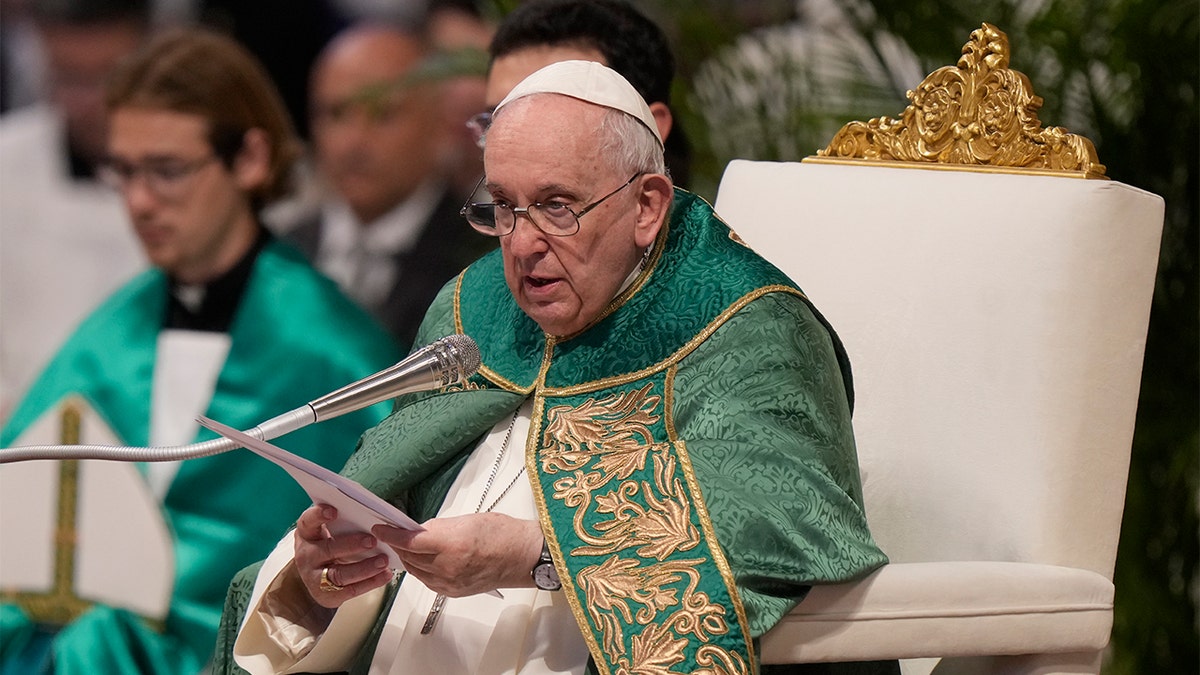Fox News Flash top headlines for September 21
Fox News Flash top headlines are here. Check out what's clicking on Foxnews.com.
Some of the highest-ranking Catholic clergy in Belgium have snubbed warnings from Pope Francis and the Vatican against straying from Catholic moral teaching on sexuality.
Belgian Catholic bishops on Tuesday announced they would begin allowing the blessing of same-sex couples — a practice repeatedly condemned by Pope Francis and the rest of the Catholic Church leadership.
Cardinal Jozef De Kesel of Mechelen-Brussels, one of the highest-ranking members of the clergy in the country, published his decision to support the change in a Tuesday message titled, "Being pastorally close to homosexual persons — For a welcoming Church that excludes no one."

Archbishop Jozef De Kesel (R) crosses the forehead of the new Bishop of Gent Lode Van Hecke (L) during his ordination and installation at the Sint-Baafskathedraal cathedral in Gent on Feb. 23, 2020. (YORICK JANSENS/BELGA/AFP via Getty Images)
GERMAN CATHOLIC BISHOPS FAIL TO UPDATE TEACHINGS ON SEX AFTER CLASH WITH POPE FRANCIS
The cardinal and bishops, by going against the teachings of the Catholic Church and disobeying the direct order of the pope and Magisterium, have driven a firm wedge between themselves and the international church.
Clergy and lay Catholics worldwide await an inevitable response from the Vatican, though what sort of action the Congregation for the Doctrine of Faith and Pope Francis will take is still up in the air.

Pope Francis arrives to take part in a public mass at Commonwealth Stadium in Edmonton, Tuesday, July 26, 2022. (Nathan Denette/The Canadian Press via AP)
POPE DERIDES BIDEN'S ABORTION VIEWS, CATHOLIC SELF-IDENTITY AS 'INCOHERENCE'
Pope Francis has repeatedly ruled against attempts to change the church's teachings on sexuality.
In a previous letter on the matter of blessing same-sex couples, Pope Francis and the Congregation for the Doctrine of Faith dismissed any further questions on the matter, saying: "This all implies a power that the Church does not possess, because she does not have the power over God's designs, which would otherwise be rejected and denied. The Church is not the arbiter of these designs and the truths they express, but their faithful interpreter and witness."

Belgian Cardinal Jozef De Kesel, archbishop of Malines-Brussels and "primate" of the Catholic Church in Belgium, leads a Mass For Peace to express support for the Ukrainian population and to denounce Russian invasion at the end of February, at the Cathedral of St. Michael and St Gudula, in Brussels on March 13, 2022. (JAMES ARTHUR GEKIERE/Belga/AFP via Getty Images)
The letter went on to state that blessing those in an illicit relationship — even if not a marital blessing — would cause confusion for the faithful.
"Because of the connection between blessings of persons and the sacraments, the blessing of such unions could in a sense imply ‘a certain imitation or analogue of the nuptial blessing,’ imparted to a man and a woman united in the sacrament of Matrimony," the letter read. "This would be erroneous and misleading."
CLICK HERE TO GET THE FOX NEWS APP
Belgium is not the only European battlefield in Pope Francis's fight to keep progressive clergy in line with the Church.

Pope Francis speaks to cardinals in St. Peter's Basilica at The Vatican during a mass he celebrated for the newly-created cardinals, Aug. 30, 2022. (AP Photo/Andrew Medichini)
After months of controversy, progressive German bishops failed to pass a similar document updating their teachings on sex, gender and masturbation.
The document, "Living in Successful Relationships," was narrowly rejected by bishops. The German prelates were pressured heavily by the Vatican to abandon the proposed changes.
At the final vote, 33 bishops voted to adopt the document, 22 voted against. The synod requires a two-thirds majority to pass the document.

